The Menopause – The New Hot Topic
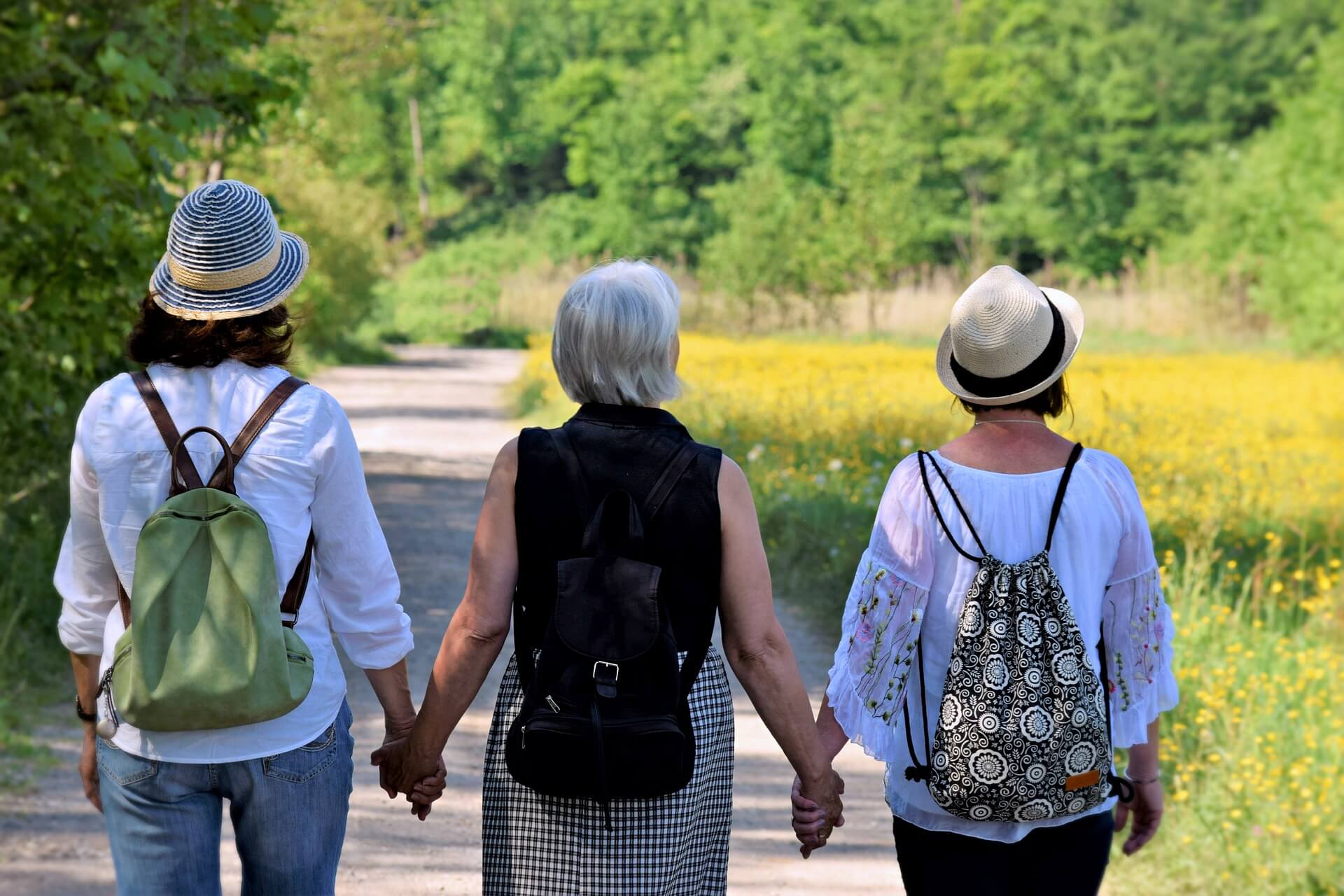
World Menopause Day was held on the 18th of October 2022, but we decided to dedicate the whole month to discuss issues around Menopause because of the importance and enormity of the subject and how it impacts every aspect of a woman’s health and well-being. In the past, menopause seemed to be a mystery, women suffered in silence through all their unpleasant symptoms, and culturally it was not discussed openly.
Menopause and any related symptoms are often seen as taboo and as a consequence, women don’t often receive the support, which is much needed. Thankfully, many menopause associations and online support groups are popping up to break the barriers around the subject and to create a more supportive environment.
Women’s Health
To start exploring the topic of women’s health and menopause as a whole, we spoke to Dr Priya Madan who is a GP and passionate about women’s health, especially after going through her pregnancy:

“I think the female body is quite incredible and women need lots of support during various stages in life – starting menstruation, sexual health, pregnancy, childbirth, postpartum period, perimenopause, menopause, and the post-menopausal years. Also, common medical issues affect women in unique ways. Sadly, women don’t get enough support from society or healthcare professionals. Women are the key to sustainable development and quality of life so we must increase education and awareness surrounding women’s health.”
We asked Priya to tell us a little about menopause – “Menopause is when your periods stop due to lower hormone levels and this usually happens between the ages of 50-52. It can sometimes happen earlier naturally or after surgery to remove the ovaries or the uterus, cancer treatments like chemotherapy or genetic reasons.”
We asked her if there was any way to avoid menopause. “All women will go through menopause usually between 45 to 55, but women have varying experiences of severity and symptoms. There are many options to help alleviate the distressing symptoms of menopause, including lifestyle (diet, exercise etc.), HRT and alternative treatments.”
We know that women go through different stages of menopause. We asked Priya to tell us more about perimenopause. “Perimenopause means ‘around menopause’ and refers to the time during which your body makes the natural transition to menopause, marking the end of reproductive years. The average length is 4 years – some people may only be in this stage for a few months, while others may be in this stage for longer than four years.”
Priya went on to explain that menopause is defined as both the natural ending of menstruation and the time during which the cessation occurs. You will know when you are in the post-menopause phase that you have no periods for at least a year. When you cease menstruating, you may still experience some symptoms associated with menopause due to hormonal changes, the ageing process, or midlife stress.
What are the symptoms of menopause?
Common menopause symptoms include hot flashes or flushes, mood changes and irritability, anxiety, fatigue, insomnia, poor memory, brain fog, vaginal dryness, acne, skin rashes, thinning hair and bones, weight gain, sore breasts, and reduced libido.
How can tea help with the symptoms of menopause?
For some women Hormone Replacement Therapy (HRT) has been the main source of treatment to help relieve menopausal symptoms. The treatment replaces lowered hormones, but some women opt for a more natural option. Some alternative approaches include meditation, yoga, diet and lifestyle changes, complementary medicines such as homoeopathy, herbal medicine, acupuncture, reflexology and supplements.
Lubna Madan who is a qualified homoeopath and tea creator for Camellia’s Tea House shares her views on the topic and how some teas may help alleviate menopausal symptoms.

“Menopause is a natural process that every woman has to go through, but this can become troublesome with the demanding pressures of a career, especially completing tasks effectively is compromised and then the responsibilities of caring for a family or dealing with domestic issues can all be too much to bear.”
“I have designed some herbal teas that contain scientifically backed botanical ingredients that may help deal with the daily symptoms of menopause and help improve the quality of life.”
Brain Fog
This is a common symptom experienced during menopause where one feels a lack of mental clarity often coincides with an inability to focus, poor levels of concentration, and memory problems. “I designed Refresh and Rebuild tea with the support of third-party medical consultants to target people living with chronic diseases. The tea contains botanical ingredients that help with general health maintenance, but most importantly the presence of turmeric and rosemary to support cognitive health”.
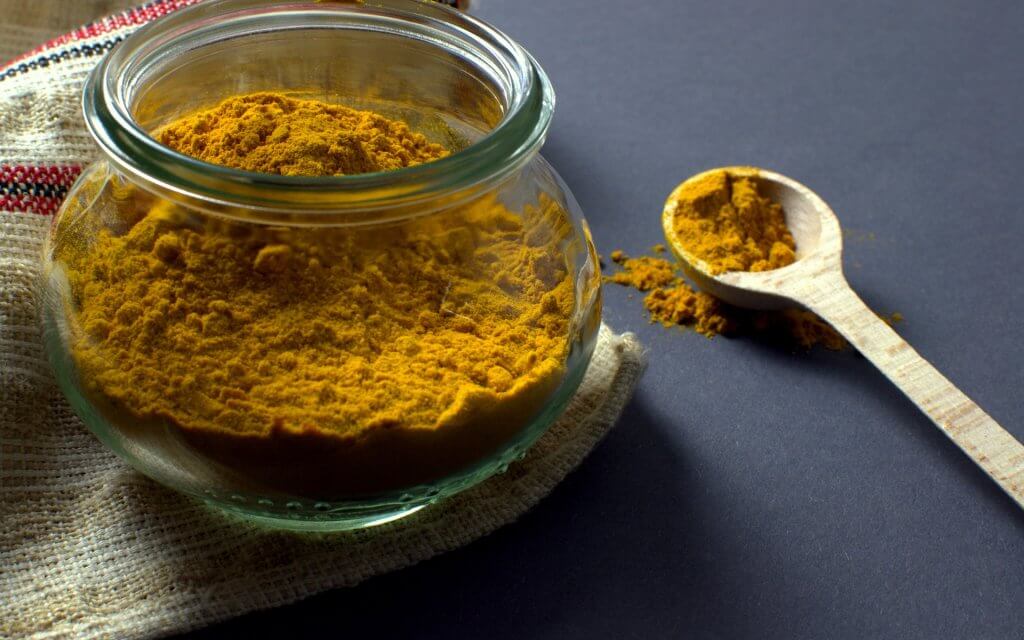
New evidence suggests that curcumin (a bi-product of turmeric) contains neuroprotective properties to preserve mental acuity. Therefore, turmeric may have the ability to boost memory function, reduce brain fog, and enhance overall cognition. Rosemary is steeped in deep history and folklore suggests that students wore rosemary garlands to enhance memory during exams. Further research is needed, but some trials have shown that rosemary tea compounds help reduce anxiety, boost mood, and improve concentration and memory.
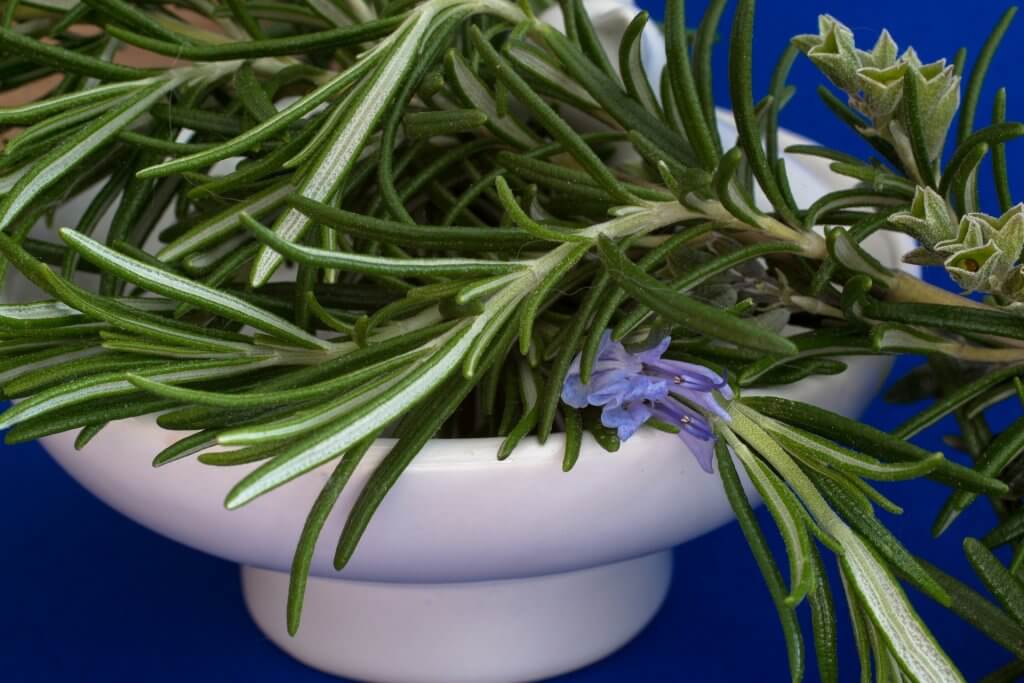
Hot Flashes/Flushes
The falling oestrogen levels cause a woman’s ‘thermoneutral’ zone to narrow—this can activate the sweating and widen the peripheral blood vessels, which also increases heat. When anxious or stressed, peri and menopausal women also release slightly higher amounts of the stress hormone noradrenaline, which increases body temperature and hormonal hot flashes.
Red Clover is rich in phytoestrogens called isoflavones, which help to combat the intensity and frequency of hot flashes. Research from Aarhus University Hospital has shown that daily intake of red clover can reduce menopausal hot flashes, particularly when combined with probiotics.
Hibiscus is cooling in nature and may be helpful by reducing hot flashes and preventing them by maintaining average body temperature. Furthermore, Hibiscus exhibits an oestrogenic effect, that mimics the effects of oestrogen, which can help ease the uncomfortable symptoms of menopause.
Hibiscus and red clover can be found in Cleanse tea, which also contains other botanical ingredients that help to cool down the body.
Fatigue and Insomnia
Changes in the oestrogen, progesterone, thyroid and adrenal hormones can make you extremely tired. These hormones are responsible for regulating cellular energy within the body. Fatigue is experienced when hormones are out of balance. Women have been using traditional herbal remedies to manage menopause and its symptoms for centuries to treat depression, anxiety, and insomnia. These emotional responses all contribute to insomnia and fatigue.
According to Mount Sinai in New York, valerian root is a popular alternative for sleep problems because it is considered to be both safe and gentle. Scientists aren’t sure how valerian works, but they believe it increases the amount of a chemical called gamma-aminobutyric acid (GABA) in the brain. GABA helps regulate nerve cells and has a calming effect on anxiety.

Valerian is often combined with other sedating herbs, such as hops and lemon balm, to treat insomnia. In one study of postmenopausal women, a combination of valerian and lemon balm helped reduce symptoms of insomnia.
Award-winning Sleep Well tea has been combined with valerian, hops, chamomile, lemon balm, and other calming botanicals to improve the quality of sleep and to help soothe the nervous system. Some studies have shown that it might take a few weeks for some people to feel the benefits of valerian root whilst others may notice an immediate effect.
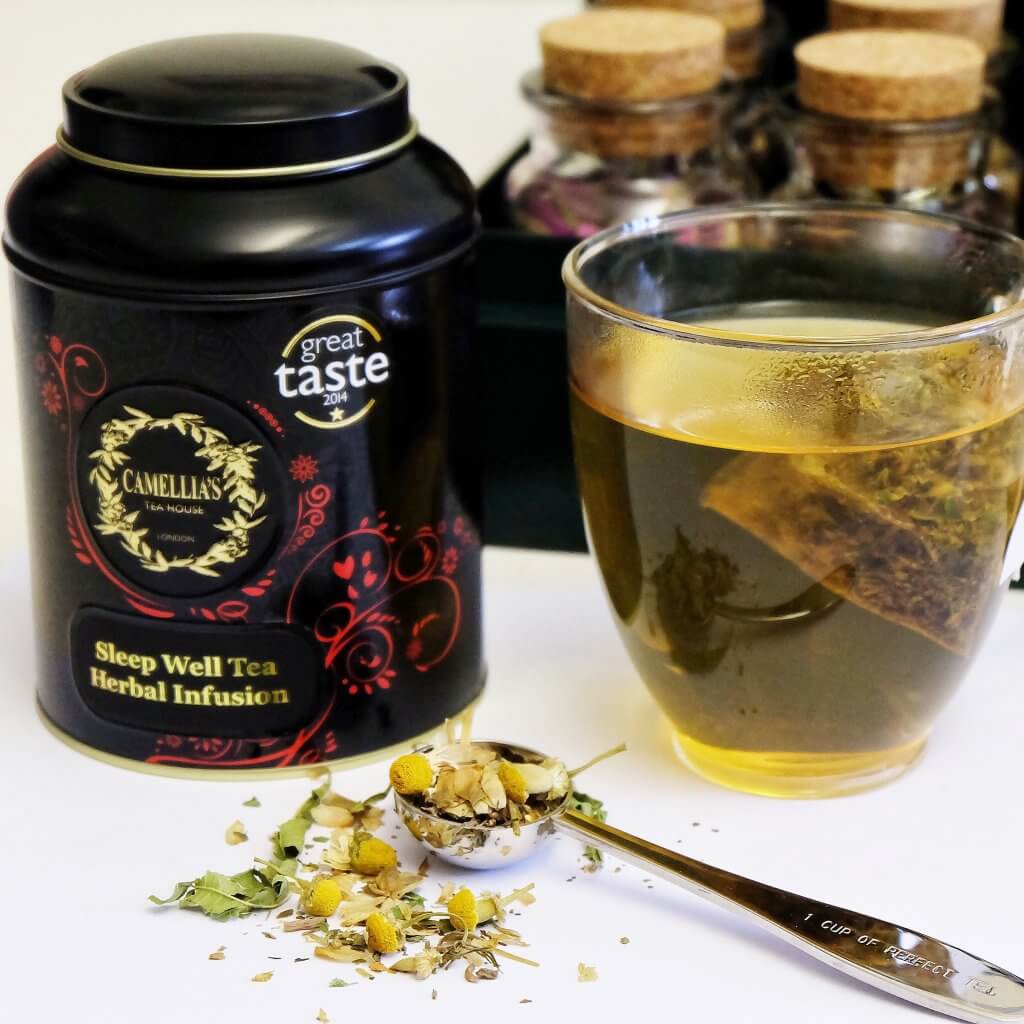
The Skin
During menopause, lower levels of oestrogen have a big impact on the skin. Less oestrogen makes you prone to thinning, sagging, and wrinkling. Eating a healthy diet with daily exercise is essential to maintaining good health and lessening the side effects of menopause. Skin rashes, redness of the skin, hormonal acne, and dry and flaky skin are common symptoms during menopause till the hormones balance themselves out.
Perimenopausal acne develops in women for much the same reasons as in puberty. The hormone imbalances impact the skin and trigger acne. In most cases, adult acne is caused by hormonal imbalances in which the body produces too much androgen (male sex hormones), or increased sensitivity to normal levels of androgen at the level of the skin.
Chamomile is considered one of the best teas for acne, because it can provide antioxidant, anti-inflammatory, and antibacterial benefits. Red Clover contains flavonoids in the flowering tops, which are oestrogenic. Red clover may help by reducing hot flashes and skin complaints such as acne, dryness, and itchy skin. Nettle and dandelion are full of nutrients and have an anti-inflammatory effect on the body. Radiant Tea contains these essential herbs and is combined with other skin-health-promoting ingredients to help target problematic skin.
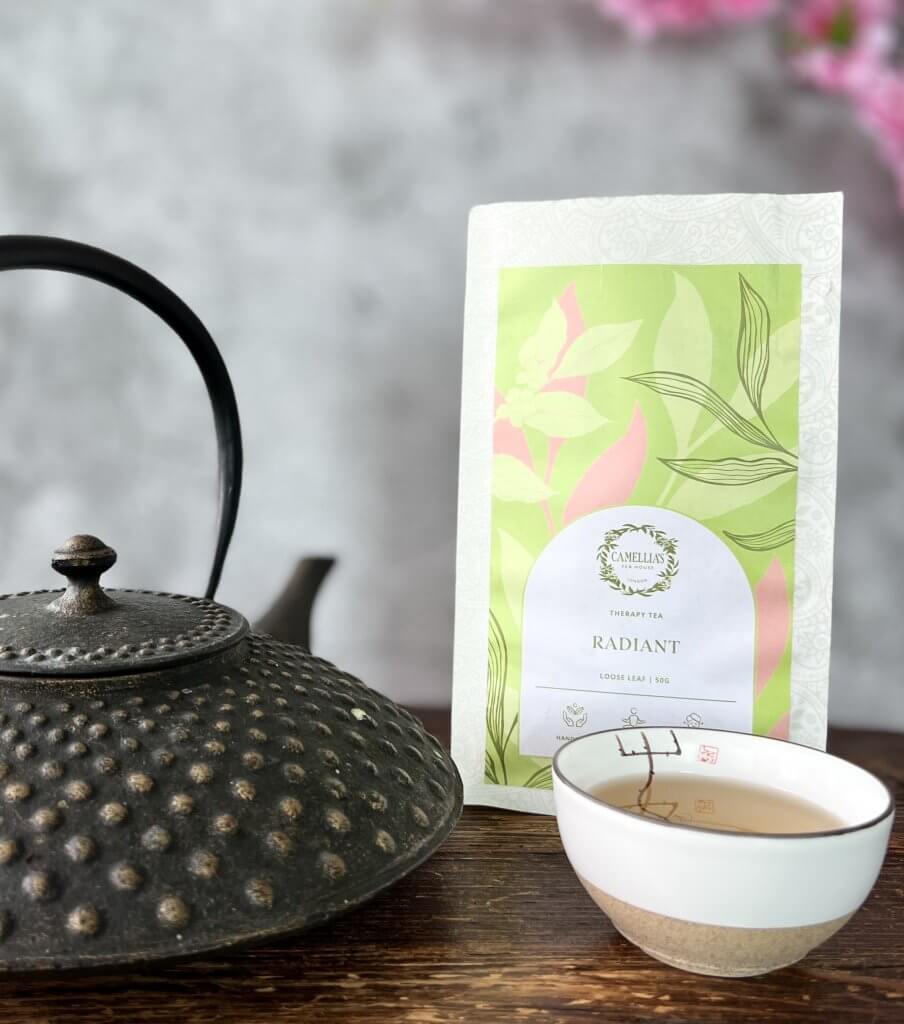
Weight Gain
Weight gain, especially around the tummy with easy bloating is a common feature experienced during menopause. Clinical studies have found compounds such as catechins, a light amount of caffeine, and antioxidants in green tea can help break down fat cells and help with weight issues, that are often experienced during menopause. Compounds in green tea (EGCG) boost metabolism and studies have also found that green tea can strengthen bone by improving bone mineral density.
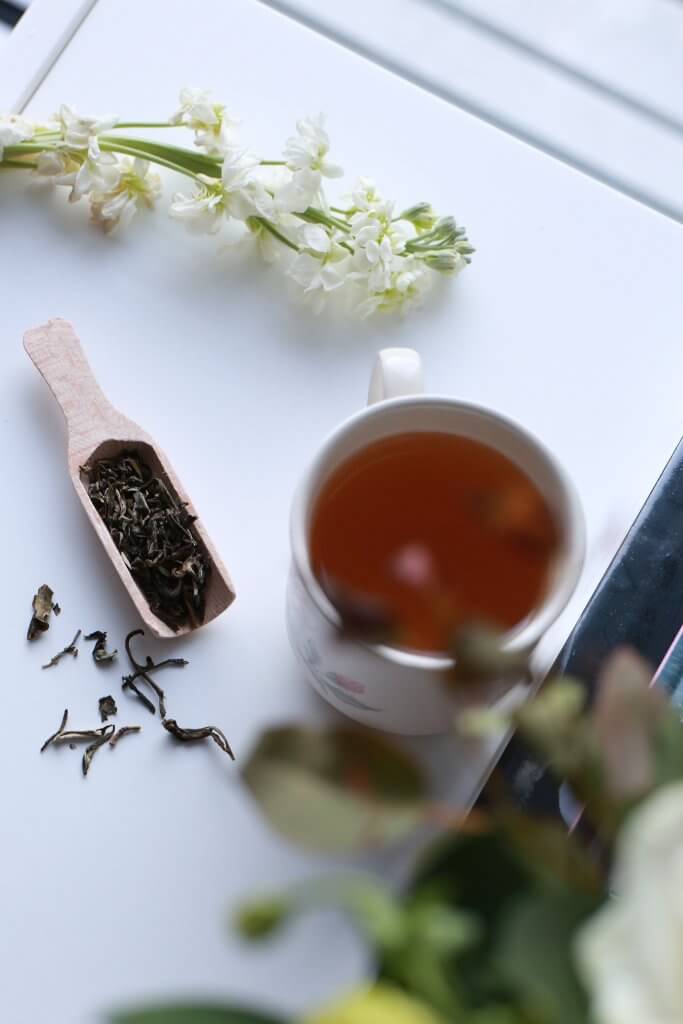
Imperial Jasmine Bai Mao Hou, is a green tea infused with jasmine flowers and some women have reported finding comfort when drinking it during menopause may be due to its wonderful floral aromas.
Mood Swings
Mood swings such as irritability, anger, depression, and anxiety are common complaints experienced by menopausal women, which can also affect the whole family. Balance Tea contains some active healing botanical plants known to herbalists from all over the world. The blend is made from Avena sativa, chamomile, lime flowers, orange peel, jasmine flowers, rose, raspberry leaf, lavender, and passionflower, which produces a cup of comfort whilst helping to restore vitality and balance.
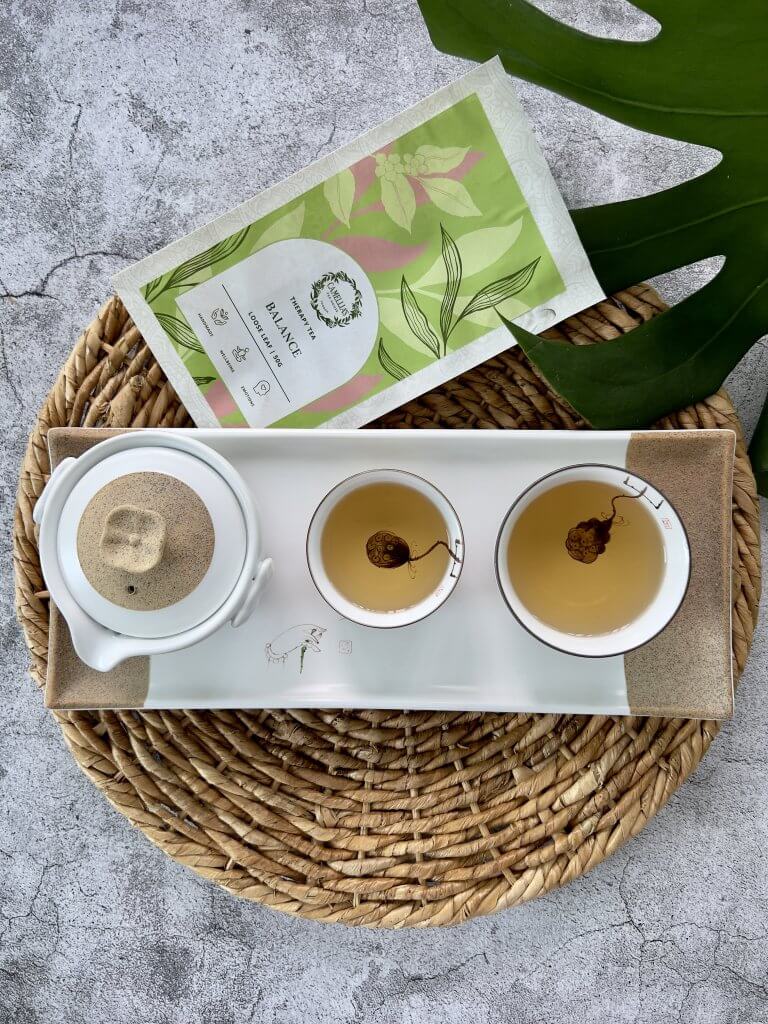
Avena Sativa, also known as oat straw has been indicated by the National Institutes of Health to contain anti-inflammatory properties, that help reduce stress. Anxiety resulting in sleepless nights can be caused by an imbalance of cortisol levels released into the body during the day. Chamomile has been shown to help alleviate stress and anxiety on a biological level according to a clinical trial involving 45 people who were diagnosed with an anxiety disorder (GAD). The studies were carried out to see if the natural increase of cortisol levels in the morning and a decline during the day was affected by chamomile. The result showed that chamomile did help with the spike of cortisol in the morning (needed for energy) and an effective decline during the day to help unwind and prepare the body for sleep. The spike and decline in cortisol levels are associated with the treatment of anxiety.
Passionflower is rich in history and has been well-documented for its therapeutic properties, especially for its neuropsychiatric effects. Many clinical trials and scientific research have indicated that passionflower can reduce stress and can therefore be helpful in the treatment of insomnia, anxiety, and depression. Raspberry leaf is known for its rich source of nutrients and its affinity to the uterus, whilst lime flower has been used traditionally as an antidote to stress-related illness, including tension and irritability.
There are plenty of ongoing studies based on menopause and still so much to learn about the subject. Women’s Health is important and as a wellness tea company, we aim to provide support to all our tea friends.
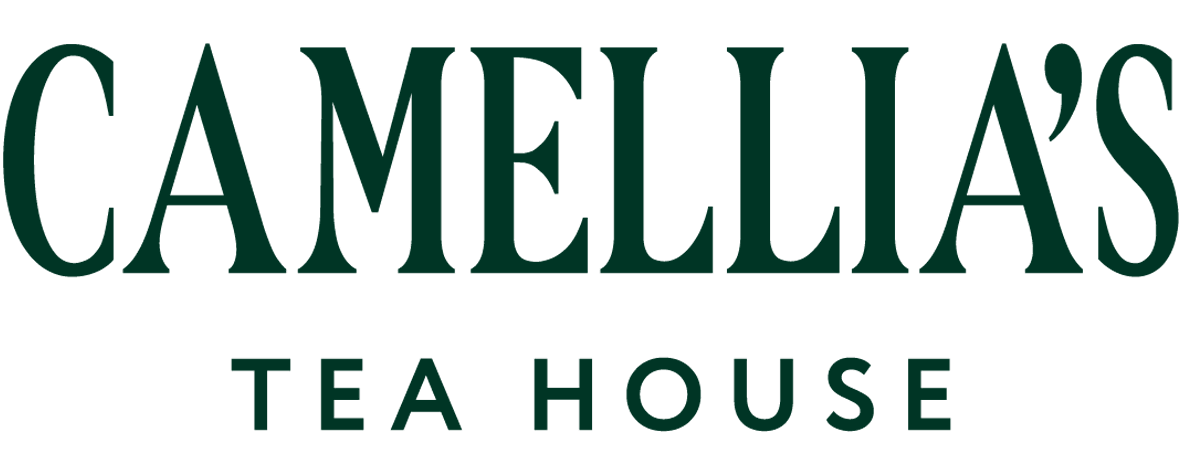






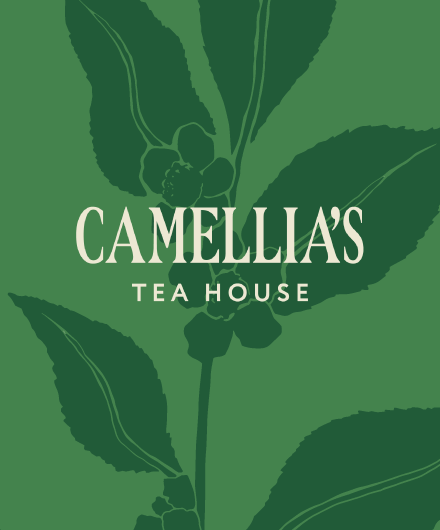
COMMENTS